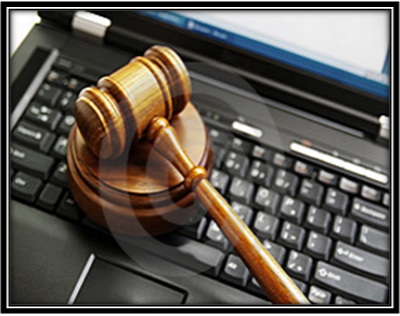
Lavanya Goinka
The world has changed dramatically as a result of technological advancements. Through numerous social networking sites, the Internet has made many things significantly easier for all of us. Whether it’s communication or information access, these things have all become second nature to us. However, these resources can be abused at times. Defamation has been a topic of concern since users can publish and circulate material through these social networking sites. The risk of ‘Cyber Defamation’ has increased as a result of the emergence of so-called trends of sharing or uploading information or photographs on particular social networking sites and commenting on them.
The phrase “cyber defamation” refers to the dissemination of false information about a person in cyberspace with the intent to harm or defame that person’s reputation. Defamation can be considered both a civil and a criminal offence in India, and victims can seek legal redress through the Indian legal system.
What do you understand by Defamation?
Defamation is defined as the wrongful and purposeful publication of something about a person, whether in written or spoken form, in order to harm that person’s reputation in society. The following fundamental factors must be present for a statement to be declared defamatory.
– The defamatory statement must be published, which means it must come to the attention of a third party.
– Only the plaintiff must be mentioned in the statement.
– The statement must be false and defamatory.
Cyber Defamation
The extensively used social media ushered in a transformation not only in India, but also around the globe. People now have a platform to communicate their opinions, thoughts, and feelings through a variety of publications thanks to the Internet’s rapid expansion. However, the ease of access and publication in the online world has produced various concerns, as these digital platforms are vulnerable to being misused by unscrupulous Internet users in the name of freedom of speech and expression. As a result, there have been numerous cases of “Cyber Defamation.”
Although cyber defamation is a novel idea, the classic definition of defamation is harm done to a person’s reputation in the eyes of a third party, and this harm can be done by spoken or written communication, as well as signs and visible representations. The statement must be directed at the plaintiff, and it must be made with the goal of damaging the reputation of the person against whom the remark is made. Cyber defamation, on the other hand, is defaming someone using a new and significantly more effective approach, such as the use of current electronic gadgets. It refers to the dissemination of derogatory information about another person in cyberspace or via computers or the Internet.
Cyber defamation occurs when a person makes a defamatory comment about another person on a website or sends E-mails containing defamatory material to the individual to whom the statement was made.
Liability of cyber defamation:
– Indian Penal Code
“Whoever makes or publishes any imputation concerning any person by words either spoken or intended to be read, or by signs and visual representations, intending to harm or knowing or having reason to believe that such imputation will harm the reputation of such person is said, except in the cases hereinafter excepted to defame that person,” according to Section 499 of the Indian Penal Code.
“Any person found responsible under section 499 would be punished with imprisonment for two years or a fine or both,” according to Section 500 of the IPC.
Forgery is dealt with in Section 469. If someone fabricates a document or account in order to undermine a person’s reputation. This offence is punishable by up to three years in prison and a fine.
The offence of criminal intimidation by use of electronic means to harm one’s reputation in society is covered by Section 503 of the IPC.
– Information Technology Act 2000
Information Technology Act of 2000, Section 66A – In the year 2015, the Supreme Court overturned this law. The section outlined the consequences of transmitting ‘offensive’ messages by computer, mobile phone, or tablet. Because the government did not define the term “offensive,” The government began to use it as a tool to stifle free speech. The Supreme Court struck down the entire clause in 2015.
A person can file a complaint with the cyber crime investigation cell if he or she has been defamed in cyberspace. It is a division of the Department of Criminal Investigation.
Problems and issues in Cyber Defamation
Our ever-increasing reliance on the Internet for social networking sites has resulted in a slew of legal difficulties in the country. When it comes to online pages like blogs or other media sites like newspapers or magazines, the most difficult component of defamation can be identifying the individual who has intended to hurt our reputation or the third party who has seen the defamatory comment. This is due to the fact that bloggers might be open or opt to remain anonymous in order to protect themselves.
As a result, if the statement appears on someone’s blog, it may be difficult to determine who made it. It’s much more difficult to identify the readers who write comments on blogs or online news items because most sites don’t require users to use their real names or disclose any personal information, such as their name, address, or e-mail address. Even if they do, it’s possible that they’ll supply misleading information. As a result, locating these individuals becomes tough. When a defamatory statement is posted on social media platforms like Facebook, it quickly spreads and is read by a huge number of people, inflicting harm to the individual who made the statement.